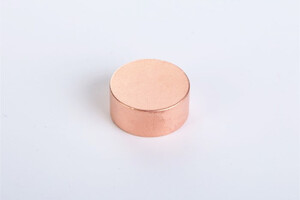Blog Information
- Posted By : zhijiang cii
- Posted On : May 17, 2021
- Views : 354
- Category : General
- Description : Strong Neodymium Magnets suppliers are by far the strongest type of permanent magnet available. Magnet advancements are a history of increasing coercivity. Neodymium magnets are both stronger and less apt to be demagnetized than other magnet types.
Overview
Strong Neodymium Magnets suppliers are by far the strongest type of permanent magnet available. Magnet advancements are a history of increasing coercivity. Neodymium magnets are both stronger and less apt to be demagnetized than other magnet types.
Where do these N numbers come from?
The performance of a magnet material is defined by that material’s hysteresis curve, also known as a Demagnetization Curve or BH Curve. The Maximum Energy Product is the point on this curve where the B value multiplied by the H value is at its maximum.
At a point on the curve, multiply the "B" value (in kilo Gauss) by the "H" value (in kilo Oersted) to get the Maximum Energy Product (in Mega Gauss Oersted, or MGOe). For example, grade N42 has a Max Energy Product of 42 MGOe.
Magnets with a bigger Maximum Energy Product will have greater strength. Specifically, the shape of the BH Curve indicates both how strong a magnet is and how strong of a magnetic field you would need to demagnetize the magnet.
Appendix: What is a BH Curve? (WARNING: Technical Content Follows)
A BH Curve describes the magnetic properties of the magnetic material. Let’s examine one step by step.
Consider a neodymium magnet sitting inside a magnetizer. The magnetizer is essentially a coil of wire wrapped around the magnet, through which we will apply a very strong current to create a magnetic field.
In the graph , the horizontal axis shows the strength of the Applied magnetic field (H) – the one we get by running current through the wire. The vertical axis shows the Induced field (B), which the permanent magnet creates by itself. around the magnet, through which we will apply a very strong current to create a magnetic field.
The magnet we will start with has just been manufactured, but not yet magnetized. The magnetic field it creates is zero (B). There is no current running through the wire, so the applied field (H) is also zero. Let’s represent this point with a dot at the zero location on the graph.
Now, let’s briefly run a terrifically strong current through the wire, placing the magnet in a uniform magnetic field. Keep increasing the current, and the applied field increases. If we measure the magnetic field, we also see an induced magnetic field, made from the magnet.
The increases level off. We still have a current running through the wire producing an Applied field, plus an Induced field from the magnet.
Now, let’s turn the current off. The Applied field (H) drops to zero, but there remains a magnetic field produced by the magnet. This point is also called Br, Br max, the Residual Induction or the Residual Flux Density.
In our Glossary, we define Br as, “the magnetic induction remaining in a saturated magnetic material after the magnetizing field has been removed.”
If we apply a current in the opposite direction, the magnetic field created by the current in the coil of wire opposes the field from the magnet -- it is in the opposite direction.
By applying progressively more current in this direction, we can find the shape of the normal curve in the second quadrant (the upper left hand quarter) of the BH Curve graph. Where the Induced field reaches zero, at point #4, is called the Coercive force, Hc. This is the magnet's Coercivity: the measure of the magnet’s resistance to demagnetization by an external magnetic field.
The farther left on the graph this point is located, the stronger the magnetic field you need to demagnetize the magnet. Not only are neodymium magnets strong, but they have the highest coercivity values of all permanent magnet types.
The whole shape of this graph is the hysteresis curve, and defines how a particular magnet material behaves. It is a property of the magnet material.
When considering the performance of an already magnetized magnet in an application, we only need to look at the 2nd quadrant to see how it will behave.
Do not hesitate to contact us,as an professional Neodymium Magnet Manufacturer, We will offer the best service for every customer.
